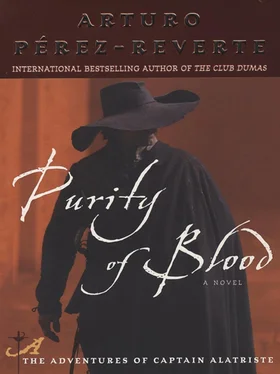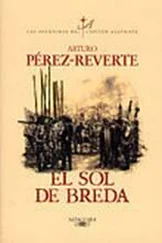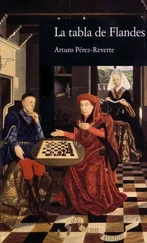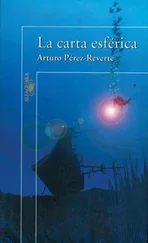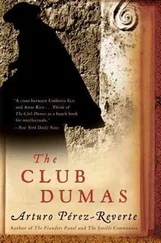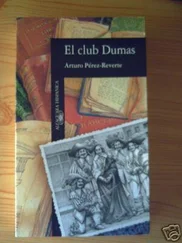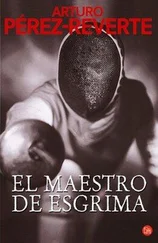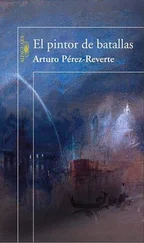Arturo Pérez-Reverte - Purity of Blood
Здесь есть возможность читать онлайн «Arturo Pérez-Reverte - Purity of Blood» весь текст электронной книги совершенно бесплатно (целиком полную версию без сокращений). В некоторых случаях можно слушать аудио, скачать через торрент в формате fb2 и присутствует краткое содержание. Жанр: Старинная литература, на английском языке. Описание произведения, (предисловие) а так же отзывы посетителей доступны на портале библиотеки ЛибКат.
- Название:Purity of Blood
- Автор:
- Жанр:
- Год:неизвестен
- ISBN:нет данных
- Рейтинг книги:3 / 5. Голосов: 1
-
Избранное:Добавить в избранное
- Отзывы:
-
Ваша оценка:
- 60
- 1
- 2
- 3
- 4
- 5
Purity of Blood: краткое содержание, описание и аннотация
Предлагаем к чтению аннотацию, описание, краткое содержание или предисловие (зависит от того, что написал сам автор книги «Purity of Blood»). Если вы не нашли необходимую информацию о книге — напишите в комментариях, мы постараемся отыскать её.
Purity of Blood — читать онлайн бесплатно полную книгу (весь текст) целиком
Ниже представлен текст книги, разбитый по страницам. Система сохранения места последней прочитанной страницы, позволяет с удобством читать онлайн бесплатно книгу «Purity of Blood», без необходимости каждый раз заново искать на чём Вы остановились. Поставьте закладку, и сможете в любой момент перейти на страницу, на которой закончили чтение.
Интервал:
Закладка:
Another pyre collapsed with a great crash, and a rain of sparks flooded the darkness, heightening the radiance that illuminated the two men. Diego Alatriste stood unmoving beside the poet, never taking his eyes from the flames. Beneath the brim of his hat, his strong mustache and aquiline nose seemed to make even leaner a face already emaciated by the fatigue of the day, as well as the new wound to his hip. Though not serious, it was quite painful.
“A pity,” murmured don Francisco, “I did not arrive in time to save her as well.”
He nodded toward the nearest pyre, and seemed shamed by Elvira de la Cruz’s fate. Not in regard to himself, or the captain, but by everything that had led the poor girl to this point, destroying her family along with her. Shamed, perhaps, by the land in which he had been fated to live: vengeful, cruel, dazzling in its sterile grandeur but indolent and vicious in everyday life. Quevedo’s honesty and stoic, sincerely Christian, Seneca-inspired resignation were not enough to console him. It seemed that to be lucid and Spanish would forever be coupled with great bitterness and little hope.
“At any rate,” Quevedo concluded, “it was the will of God.”
Diego Alatriste did not immediately reply. God’s will or the Devil’s, he remained silent, eyes on the fires and the black outlines of the constables and masses of people silhouetted against the ominous backdrop of the flames. He had not yet come to see me on Calle del Arcabuz, though Quevedo, and then Martín Saldaña, whom they had scouted out earlier in the day, had told him that there was nothing to fear. Everything seemed to have been resolved with such discretion that not even the death of the swordsman in the alley had come to light, nor did anyone have news of the injured Gualterio Malatesta. So, as soon as his wound had been bandaged in Tuerto Fadrique’s apothecary, Alatriste had gone with Quevedo to the burning at the Puerta de Alcalá. And there he stayed, along with the poet, until Elvira was nothing but bone and ash in the coals of her pyre.
For one moment the captain thought he sighted Jerónimo de la Cruz among the throng, or at least the ghostly shade the elder brother seemed to have become, the one survivor of the slaughtered family. But darkness and the milling crowd had closed back over his muffled face—if it had in fact been him at all.
“No,” Alatriste said finally.
He had taken so long to speak that don Francisco was not expecting to hear anything, and he looked at him with surprise, trying to think what he was referring to. But the captain, expressionless, continued to observe the fires. Only later, after a second long pause, did he slowly turn toward Quevedo and say, “God had no part in this.”
Unlike the poet’s eyeglasses, Alatriste’s gray-green eyes did not reflect the light of the bonfires; they were more reminiscent of two pools of frozen water. The last of the flames shed dancing shadows and red hues on his knife-sharp profile.
I was feigning sleep. Caridad la Lebrijana was sitting by the head of the bed, where she had tucked me in after supper and a warm bath in a large tub brought from the tavern. She was watching over me while, by candlelight, she mended some of the captain’s linen. Eyes closed, I was enjoying the warmth of the bed, in a delicious half-sleep that also allowed me to keep from answering questions or having to say anything about my recent adventure. The mere thought of it—I could not get the infamous sanbenito out of my mind—still ate into me like acid. The warmth of the sheets, the kind company of La Lebrijana, the knowledge that I was among friends, and especially the prospect of lying there in the quiet, eyes closed, as the world outside whirled on with no thought of me, had lulled me into a lethargy resembling happiness, compounded by the thought that during my imprisonment no one had torn a word from me that would incriminate Diego Alatriste.
I did not open my eyes when I heard steps on the stairway, or when La Lebrijana, swallowing an exclamation, threw her mending to the floor and herself into the captain’s arms. I lay listening to the quiet murmur of conversation, several resounding kisses from the tavern keeper, the new arrival’s mutter of protest, and footsteps receding down the stairs. I thought I was alone until after a long silence I again heard the captain’s boots, this time approaching the bed, and stopping there.
I nearly opened my eyes, but did not. I knew that he had seen me in the plaza, humiliated among the penitents. And I had not been able to forget that because I had disobeyed his orders, I had let myself be trapped like a linnet the night we attacked the convent of the Adoratrices Benitas. In short, I still did not find myself strong enough to confront his questions or his reproaches. Not even the silence of his gaze. So I lay motionless, breathing evenly to feign sleep.
There was an endless time during which nothing happened. No doubt he was watching me in the light of the candle La Lebrijana had left by the bed. Not a sound, not his breathing, nothing at all. And then, when I was beginning to doubt that he actually was there, I felt the touch of his hand, the rough palm that he laid for a moment on my forehead, with a warmth and unexpected tenderness. He held it there a moment and then brusquely pulled away. I heard the steps again, and the sound of the cupboard being opened, the clink of a glass and a jug of wine, and the scraping of a chair being moved.
Cautiously, I opened my eyes. In the dim light of the room I saw that the captain had unfastened his doublet and unbuckled his sword. Seated by the table, he was drinking in silence. The wine gurgled again and again as it was poured into the glass. He drank slowly, methodically, as if he had nothing else in the world to do. The yellowish candlelight illuminated the light blotch of his shirt, the plane of his face, his short-trimmed hair, the tip of his thick soldier’s mustache. He was silent, not moving except to drink. Behind him was the window he had opened, and I could see vague outlines of nearby rooftops and chimneys. Over them shone a single star, still, silent, cold. Alatriste stared fixedly into the void, or at his own ghosts wandering in the darkness. I knew his eyes when the wine clouded them, and I could guess how they looked at that moment: glaucous, absent. At his waist, blood was slowly soaking the bandage on his hip, staining his white shirt with red.
He seemed as resigned and alone as the star winking outside in the night.
Two days later, sun was shining on Calle de Toledo, and again the world was wide and filled with hope, and the vigor of youth was leaping in my veins. Sitting at the door of the Tavern of the Turk, practicing my penmanship with the writing materials Licenciado Calzas kept bringing me from La Provincia plaza, I was again seeing life with that optimism and that speedy recovery following misfortune that only good health and youth can give. From time to time I looked over toward the women selling vegetables in the stands across the street, the hens pecking scraps, and the ragamuffins running around among the horses and coaches, as I listened to the sound of conversations inside the tavern. I considered myself the most contented boy in the world. Even the verses I was copying seemed to me the most beautiful ever written.
The shadow that comes to end day’s reverie Will bring the dark, and close my eyelids fast, Enabling this soul of mine, at last, To slough off anguish and anxiety.
The words were don Francisco de Quevedo’s, and they had seemed so lovely when I heard him casually reciting them between sips of San Martín de Valdeiglesias, that I had asked his permission to write them out in my best hand. Don Francisco was inside with the captain and the others—the licenciado, Dómine Pérez, Juan Vicuña, and the Tuerto Fadrique—all of them celebrating with carafes of the finest, sausages and cured hares, the happy end to a bad situation, which no one mentioned explicitly but all had very much in mind. One after another they had ruffled my hair or given me an affectionate pinch on the cheek as they arrived at the tavern. Don Francisco brought me a copy of Plutarch so that I could practice my reading. The dómine brought a silver rosary, Juan Vicuña came with a bronze belt buckle he had worn in Flanders, and the Tuerto Fadrique—who was the pinchpenny of the brotherhood and little inclined to part with his money—brought an ounce of a compound from his pharmacy that he assured me was perfect for building up the blood and restoring color to a lad like myself, who had suffered so many recent travails. I was the most honored, and the happiest, boy in all the Spains, as I dipped one of Licenciado Calzas’s good goose quills into the inkwell, and continued:
Читать дальшеИнтервал:
Закладка:
Похожие книги на «Purity of Blood»
Представляем Вашему вниманию похожие книги на «Purity of Blood» списком для выбора. Мы отобрали схожую по названию и смыслу литературу в надежде предоставить читателям больше вариантов отыскать новые, интересные, ещё непрочитанные произведения.
Обсуждение, отзывы о книге «Purity of Blood» и просто собственные мнения читателей. Оставьте ваши комментарии, напишите, что Вы думаете о произведении, его смысле или главных героях. Укажите что конкретно понравилось, а что нет, и почему Вы так считаете.
